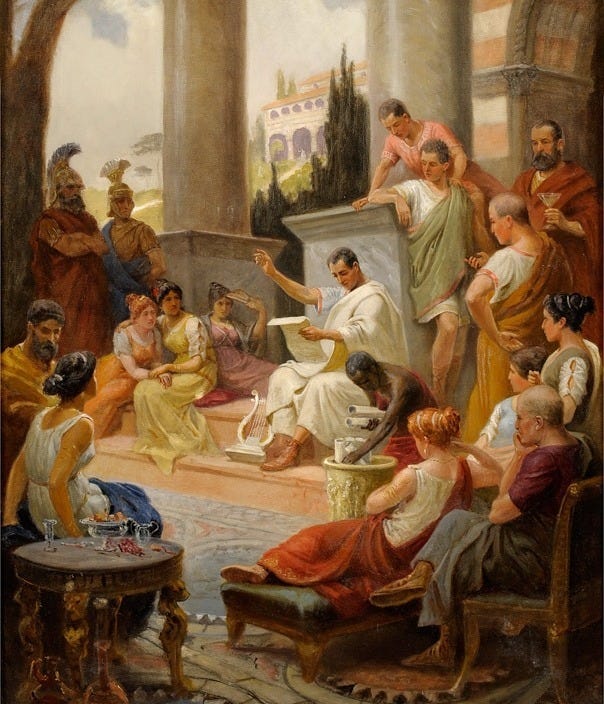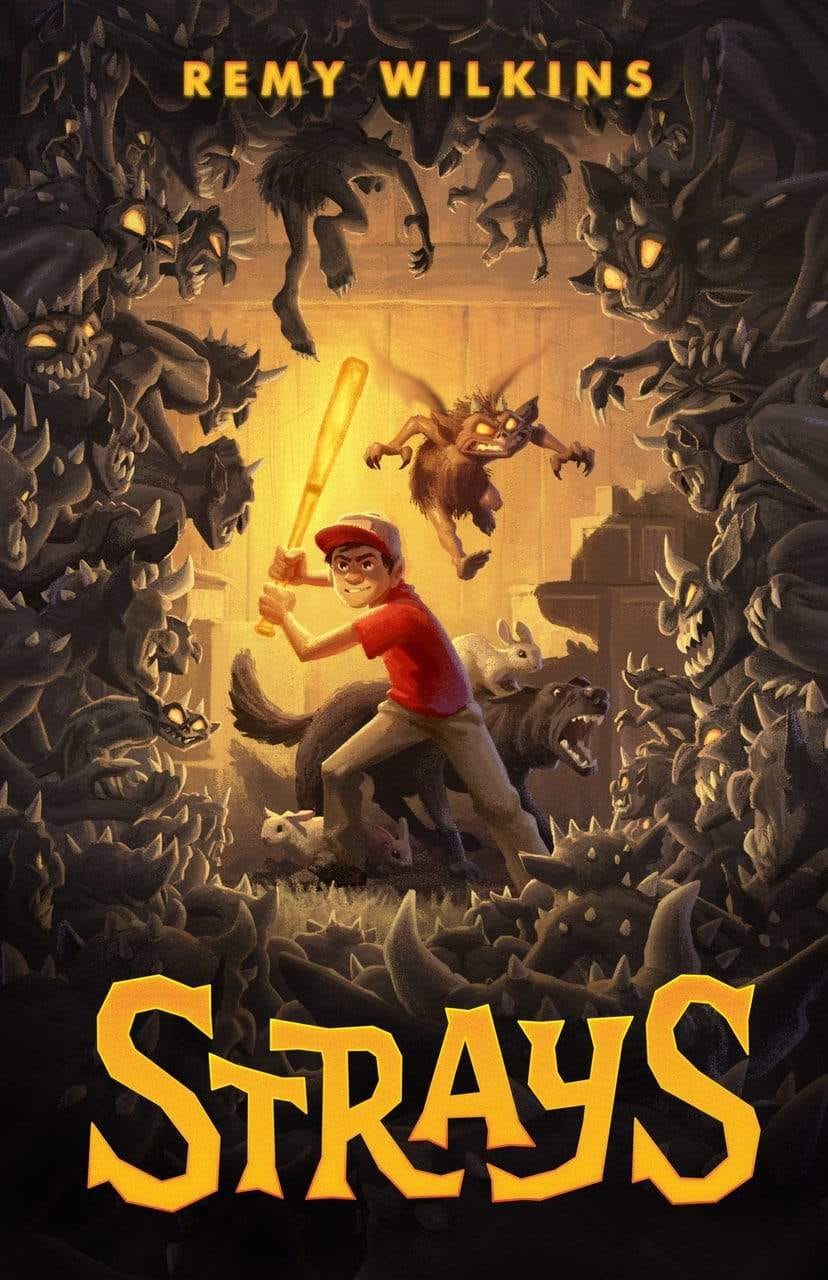Nota Bene: I’m trying out some new sections in these digests posts, primarily in preparation for some of the changes coming over the next several months. Hopefully, these will continue to be some of my most read posts.
A Commonplace Thought
Of good writing the source and fount is wisdom. Your matter the Socratic pages can set forth, and when matter is in hand words will not be loath to follow. He who has learned what he owes his country and his friends, what love is due a parent, a brother, and a guest, what is imposed on senator and judge, what is the function of a general sent to war, he surely knows how to give each character his fitting part. I would advise one who has learned the imitative art to look to life and manners for a model, and draw from thence living words.
Horace, Ars Poetica, in Satires, Epistles, and Ars Poetica, edited and translated by H. Rushton Fairclough, Loeb Classical Library 194 (Cambridge: Harvard University Press, 1929), p. 477.
Great Ideas: Virtue & Vice, Poetry, Education, Art

To say that Horace’s theory of literature is out of sync with the modern world would be an understatement. There is little doubt that the current trends in writing do in fact advocate for ideologies on their often-unsuspecting readers, whether they're pushing some kind of socialist angle or an emotional appeal that de-matures the reader. In short, modern approaches to literary theory can’t escape Horace’s ideas no matter how hard they try. They simply attempt to replace Horace’s appeal to the Tao with some Controller-led Tao sustitute. I think this is one of the reasons why it is so important to return to the great writers of the past, to commune with the democracy of the dead. They expose where we’ve gotten turned about and offer road signs back to the proper path. Horace’s Ars Poetica is such a sign; readers and writers alike ought to take heed.
What I’m Reading
While I still hope to finish my Edgar Rice Burroughs reading before Summer, I have strayed from the path a bit. I’ve begun working through Robert E. Howard’s Conan writings, which is thankfully shorter than the Barsoom-Pellucidar-Amtor collection.1 Howard’s writing surprised me with its quality, and I find the peculiar exploration of civilization vs barbarism thought-provoking.
My other reading has been scattered. My family finished Strays by Remy Wilkins (
) and I really can’t recommend it enough. My daughter, who is easily frightened, cried in agony every time we stopped reading. I think we will read Hush, Hush next. I also finished James Jordan’s Primeval Saints as well as his Through New Eyes. Add to that Padraic Colum’s Children’s Homer and Susan Wise Bauer’s Story of the World, Vol. 1: The Ancient World. Thus, much of February has been spent reading for or with my children. I’ve done some more literary theory reading, continuing the theme of last month. And I have started a couple of books relevant to my studies at the University of Birmingham.My Public Work
This month saw the publication of a short essay over at the Circe Institute. This was an idea that I first started thinking about when the COVID lockdowns were in force, though it never quite came together. But the Muse struck in the beginning of February, and “The Lessons of Sleepy Hollow” was born.
I’m also gearing up to give two talks at the March Ciceronian Society, which I will have more to say about in the future.
A Musical Recommendation
I first heard this song on an XM radio channel promoting “missed gems” from the 2010s. I was not aware that it has experienced renewed interest thanks to placement in commercials and a TikTok . . . thing. Regardless, I’ve developed an interest in Edward Sharpe & the Magnetic Zeroes as a result of listening to this tune, and despite my deep aversion to whistling, I find the whole performance intriguing.
Tarzan is a part of this world, but since he only overlaps in one story, I’m not attempting to get through all the Tarzan books as a part of this reading project.




Ha! Didn’t know we shared a revulsion towards whistling. Although, to be honest, I don’t actually mind it in a song. Just don’t love hearing people around me pierce the very air with their whistling, even if it is tuneful.
I never got very deep into their catalog, but I do like that song and a few others for sure.
Looking forward to checking out your Sleepy Hollow essay.